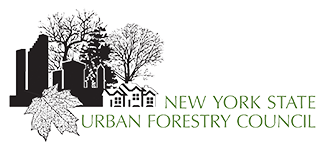The Society of Municipal Arborists (SMA) recently hosted a virtual Town Hall to learn more about $1.5 billion in additional federal funding for urban and community forestry (UCF) provided by the Inflation Reduction Act. The Town Hall moderator was SMA Executive Director Leslie Berckes and the guest speaker was David Sivyer. David is the U.S. Forest Service Eastern Region Program Leader for 21 states in the Northeast, Mid-Atlantic, and Midwest; and he is currently serving in an acting capacity as the UCF Program National Program Leader for Urban and Community Forestry. David is also the Forest Service liaison to the SMA. Key takeways from David on the IRA funding follow.
Be sure to sign up now for the next SMA Town Hall on the topic of Carbon Crediting on Monday, December 19th at 1 pm EST.
Key Takeaways from David Sivyer on the IRA Funding for UCF:
-The Inflation Reduction Act (IRA) funding includes $1.5 billion over ten years for the Forest Service to provide competitive grants directly to applicants, to include (but not limited to) tribal nations, nonprofits, states, and municipalities. This is not a new grant program but is new funding that is additional to the yearly funding the Forest Service allocates to the states for cost-share grants (in 2022, this was $36 million dollars).
The priority for this competitive grant funding will be for proposals that substantially invest in the long-term growth and development of state and local urban forestry programs to support:
- increased and equitable access to urban tree canopy and associated human health, environmental, and economic benefits in disadvantaged communities;
- broadened community engagement in local urban forest planning; and
- improved resilience to climate change, pests and storm events through best management and maintenance practices.
Examples include tree inventory/tree canopy assessment data, tree canopy expansion and equity planting, urban forest planning and management, proactive tree maintenance, workforce development, and related programs for historically underserved or disadvantaged communities, for whom the cost-share requirement, a feature of the Forest Service annual grants to date, will be eligible for match waiver.
The grant funding has to be spent before the end of FY 2031. The Forest Service is currently setting up its internal infrastructure to oversee the IRA UCF funds, so they are not yet accepting proposals and there have been no allocations. The Forest Service is currently developing a Climate and Economic Justice Screening Tool that applicants should use when the notice of available funds is issued next year (roughly estimated to be early 2023). This tool will be used by the Forest Service application reviewers to help determine applications eligible for match waiver, and it is meant to assist in the goals of President Biden’s Justice40 Initiative.
The most successful grant applications will be those that plan for sustainable program development and expanding capacity rather than for one-time projects. Grant proposals that allow for a more proactive management of the urban forest are encouraged. Collaborative program applications (e.g., by multiple municipalities or by a municipality and a nonprofit) are encouraged.
Notes from the Q&A:
-Hazard tree mitigation and canopy restoration work in storm-damaged disadvantaged communities would qualify as an eligible expense that could be funded through IRA and subject to match waiver.
-UFIA (Urban Forestry Inventory and Analysis) work will continue, funded independently of the IRA funding. Communities may elect to accelerate or expand UFIA data collection as part of an IRA grant proposal.
-A Sustainability Plan is not required per se as part of the grant proposal, but program proposals that demonstrate sustainability after the IRA funding ends will be more competitive.
-The Forest Service will use an online portal system for IRA similar to what has been used in the last few years for cost-share grants and urban forestry resilience grants.
-No floors or ceilings on the amount of funding requested have been established; there may not be any. Stay tuned on that.
-Could money go towards Integrated Vegetation Management programs? An application for IVM programs could be successful if the proposed program includes trees and expands the urban forest in a significant way.
Stay tuned to the Forest Service and SMA communications for more information as it rolls out. 🌳



